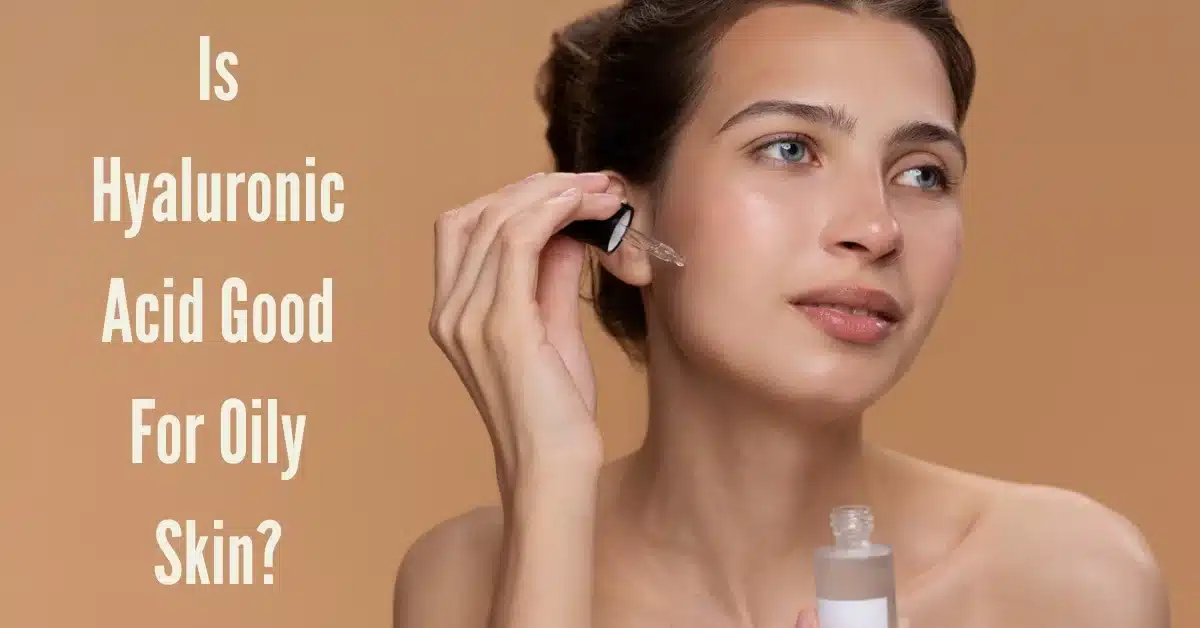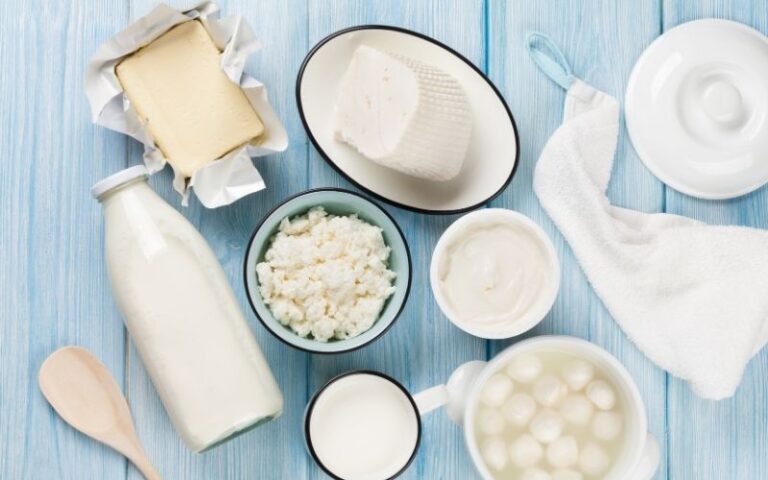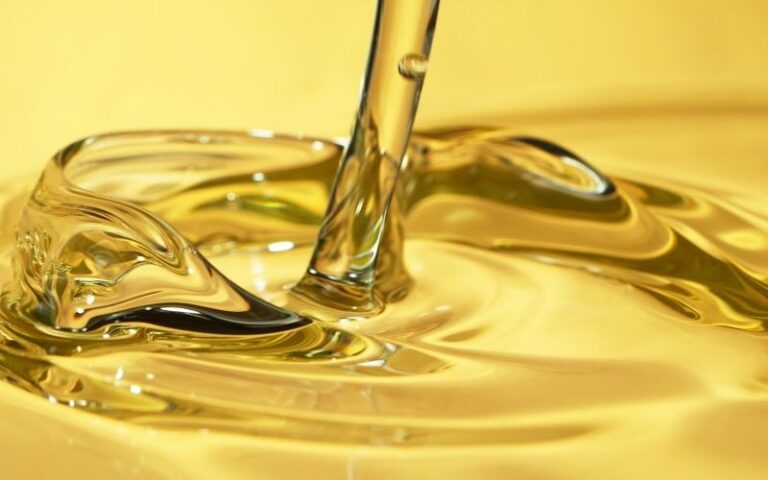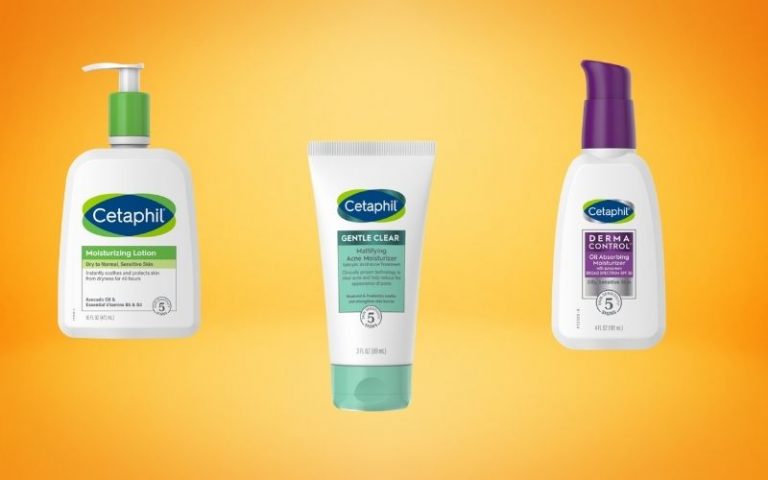Is Hyaluronic Acid Good For Oily Skin?

Yes, hyaluronic acid is beneficial for oily skin concerns. Despite being a hydrating ingredient, it has a lightweight texture and non-comedogenic properties, making it suitable for oily skin types. Its moisturizing properties help balance oil production and maintain the skin’s hydration levels.
Managing oily skin can be quite challenging. It can leave you feeling self-conscious and frustrated and can even lead to breakouts and other skin issues. For individuals with oily skin, searching for the perfect balance between hydration and oil control is a constant struggle. That’s where hyaluronic acid comes in.
Hyaluronic acid is an amazing substance known for its hydrating and skin-healing properties. If you are wondering if it’s suitable for oily skin, let’s explore it.
Table Of Contents
- What Exactly is Hyaluronic Acid, and How Does It Work?
- The Relationship Between Hyaluronic Acid and Oily Skin
- Incorporate Hyaluronic Acid into Your Skincare Routine
- Tips for Using Hyaluronic Acid with Other Skincare Products
- Common Misconceptions About Hyaluronic Acid and Oily Skin
- Best Hyaluronic Acid Products for Oily Skin
- DIY Hyaluronic Acid Face Masks for Oily Skin
- So, Is Hyaluronic Acid Good for Oily Acne-Prone Skin?
- Hyaluronic Acid Supplements for Overall Skin Health
What Exactly is Hyaluronic Acid, and How Does It Work?
Hyaluronic acid is a natural substance found in your skin cells. It acts as a moisture magnet, holding up to 1000 times its weight in water. This makes it an excellent ingredient for hydrating the skin without clogging your pores or adding excess oil.
As we age, our skin’s natural production of hyaluronic acid decreases, which can lead to dryness and the appearance of fine lines and wrinkles. By incorporating hyaluronic acid into your skincare regimen, you can help restore the skin’s natural moisture barrier and keep it looking plump and youthful.
Hyaluronic acid serves as a humectant, pulling moisture from the air and locking it into the skin. This aids in maintaining skin hydration and elasticity while preventing moisture loss. Moreover, hyaluronic acid possesses antioxidant properties, safeguarding the skin against environmental stressors that contribute to premature aging.
The Relationship Between Hyaluronic Acid and Oily Skin
The relationship between hyaluronic acid and oily skin is often misunderstood. Oily skin is identified by the overproduction of sebum, resulting in a shiny complexion and a higher risk of acne breakouts. Many people with oily skin assume that adding more moisture to their skin will worsen the problem. However, hyaluronic acid can actually benefit oily skin in several ways.
Despite its hydrating properties, it has a lightweight texture that does not feel heavy or greasy on the skin. When applied topically, hyaluronic acid helps balance the skin’s moisture levels, providing hydration without adding excess oil. By keeping the skin adequately moisturized, hyaluronic acid helps regulate the skin’s natural oil production, preventing the overproduction of sebum.
Moreover, hyaluronic acid has anti-aging effects that can benefit individuals with oily skin. Oily skin tends to age slower than dry skin due to the increased moisture and natural oils present. However, incorporating hyaluronic acid into the skincare routine can further enhance its anti-aging benefits.
Hyaluronic acid promotes collagen synthesis, enhancing skin elasticity and fading the appearance of fine lines and wrinkles. By maintaining a hydrated and plump complexion, hyaluronic acid helps preserve a youthful appearance.
One of the advantages of hyaluronic acid for oily skin is that it is non-comedogenic, meaning it does not clog the pores. Clogged pores are a common concern for individuals with oily skin, as they can lead to acne breakouts. Hyaluronic acid has a molecular structure that allows it to penetrate deep into the skin without causing congestion. It provides lightweight hydration to the skin cells without blocking the pores, making it suitable for oily skin types.
Incorporate Hyaluronic Acid into Your Skincare Routine
If you’re ready to incorporate hyaluronic acid into your skincare routine, here are the best ways to do so:
1. Hyaluronic Acid Serum for Oily Skin
One of the easiest ways to use hyaluronic acid is through a serum. Despite its hydrating properties, the hyaluronic acid serum has a lightweight texture that doesn’t feel heavy or greasy on the skin.
It helps balance the skin’s moisture levels, providing hydration without adding excess oil. By regulating oil production, the hyaluronic acid serum helps prevent the overproduction of sebum and promotes a more balanced complexion.
Additionally, it can have anti-aging effects by promoting collagen synthesis, improving skin elasticity, and reducing the appearance of fine lines and wrinkles.
To use a hyaluronic acid serum, start with a clean, dry face. Apply a few drops of the serum to your fingertips and gently press it into your skin. Complete your skincare routine by applying a moisturizer to lock in the hydration.
2. Hyaluronic Acid Face Wash for Oily Skin
Cleansing is an essential step in any skincare routine, especially for oily skin. Hyaluronic acid face washes are specifically formulated to address the needs of oily skin types. These cleansers effectively remove excess oil and don’t strip the skin of its natural moisture.
By incorporating a hyaluronic acid face wash into your daily regimen, you can cleanse and hydrate your skin simultaneously, promoting a healthy and balanced complexion.
3. Hyaluronic Acid Toner for Oily Skin
Toners are an excellent addition to a skincare routine, as they help balance the skin’s pH levels and prepare it for further product absorption. Hyaluronic acid toners are particularly beneficial for oily skin, as they provide lightweight hydration and enhance the overall effectiveness of subsequent skincare products.
By incorporating a hyaluronic acid toner into your regimen, you can optimize the benefits of hyaluronic acid while controlling excess oil production.
4. Hyaluronic Moisturizer for Oily Skin
Moisturizing oily skin can be challenging, as heavy creams can often exacerbate the issue. However, hyaluronic acid moisturizers offer a lightweight and non-greasy solution. These moisturizers provide essential hydration to the skin, maintaining a healthy moisture balance without clogging the pores.
By opting for a hyaluronic acid moisturizer specifically formulated for oily skin, you can nourish your skin without adding unnecessary oiliness.
Tips for Using Hyaluronic Acid with Other Skincare Products
Hyaluronic acid is a versatile skincare ingredient that can be effortlessly integrated into your daily routine. To maximize its benefits and enhance its effectiveness, consider the following tips for using hyaluronic acid with other skincare products:
1. Apply Hyaluronic Acid to Damp Skin
Before applying hyaluronic acid, ensure that your skin is slightly damp. Hyaluronic acid works best when applied to moist skin as it aids in retaining moisture, resulting in better hydration. Consider misting your face with water or using a hydrating toner before applying the hyaluronic acid serum.
2. Layering Order
When using multiple skincare products, it’s essential to layer them in the correct order for optimal absorption and efficacy. Generally, it is recommended to apply hyaluronic acid serums or products after cleansing and toning but before heavier creams or oils. This allows the hyaluronic acid to penetrate the skin effectively and create a moisture barrier.
3. Combine with Moisturizer
To further enhance hydration, mix a few drops of hyaluronic acid serum with your favorite moisturizer before applying it to your skin. This helps to boost the moisturizing effects and ensures that the hyaluronic acid is evenly distributed.
4. Use with Gentle Exfoliation
Incorporating exfoliation into your skincare routine is a crucial step, but it’s important to choose gentle exfoliants when using hyaluronic acid. Harsh or abrasive exfoliators can strip away the hyaluronic acid and disrupt the skin’s moisture balance.
Opt for chemical exfoliants like AHAs or BHAs that gently remove dead skin cells without compromising the benefits of hyaluronic acid.
5. Sun Protection
Hyaluronic acid helps to hydrate the skin, but it does not provide sun protection. Always follow up with a broad-spectrum sunscreen to shield your skin from harmful UV rays. Sunscreen not only shields your skin from sun damage but also helps preserve the moisture provided by hyaluronic acid.
6. Patch Test New Products
If you’re introducing a new skincare product containing hyaluronic acid or any other ingredient, it’s always recommended to perform a patch test. Apply a small amount of the product on a discreet area of your skin and observe for any adverse reactions or sensitivity before applying it to your entire face.
Remember, everyone’s skin is unique, and it may take some experimentation to find the best way to incorporate hyaluronic acid into your skincare routine. Pay attention to how your skin responds and adjust the usage accordingly. By following these tips, you can optimize the benefits of hyaluronic acid and achieve a hydrated, healthy-looking complexion.
Common Misconceptions About Hyaluronic Acid and Oily Skin
There are a few common misconceptions about hyaluronic acid and oily skin that are worth addressing.
First, some people believe that hyaluronic acid is too moisturizing for oily skin and will make it look even greasier. However, as we’ve discussed, hyaluronic acid is actually a great option for oily skin because it provides lightweight hydration without adding excess oil.
Another misconception is that hyaluronic acid is only suitable for those with dry skin. While it’s true that hyaluronic acid is great for hydrating dry skin, it’s also a safe option for individuals with oily or combination skin.
Finally, some people worry that using hyaluronic acid will make their skin dependent on it and that their skin will become dehydrated if they stop using it. However, this is not the case. While hyaluronic acid can help improve the skin’s natural moisture barrier, it won’t cause your skin to stop producing moisture on its own.
Best Hyaluronic Acid Products for Oily Skin
When it comes to choosing hyaluronic acid products for oily skin, it’s important to look for lightweight, non-greasy formulations that provide hydration without adding excess oil. Here are some highly recommended hyaluronic acid products specifically tailored for oily skin:
1. The Ordinary Hyaluronic Acid 2% + B5
This popular and affordable serum from The Ordinary is an excellent choice for oily skin. It combines hyaluronic acid with vitamin B5 to enhance hydration and promote a healthy skin barrier. The lightweight formula absorbs quickly, leaving the skin plump and moisturized without feeling heavy.
2. Neutrogena Hydro Boost Water Gel
This oil-free gel moisturizer is infused with hyaluronic acid and provides intense hydration to oily skin. The unique gel texture is lightweight, non-comedogenic, and absorbs quickly into the skin. It helps replenish moisture, leaving the skin soft, supple, and balanced.
3. COSRX Hyaluronic Acid Hydra Power Essence
Designed specifically for oily and dehydrated skin, this essence contains hyaluronic acid along with sea buckthorn water and vitamin B5. It delivers deep hydration without greasiness and helps improve the skin’s moisture barrier. The lightweight formula absorbs easily, leaving the skin refreshed and hydrated.
4. La Roche-Posay Hyalu B5 Pure Hyaluronic Acid Serum
This hyaluronic acid serum is suitable for oily skin as it is oil-free, non-comedogenic, and has a fast-absorbing formula. It is enriched with hyaluronic acid, vitamin B5, and madecassoside, which helps to plump the skin, reduce fine lines, and restore moisture balance.
5. Paula’s Choice RESIST Hyaluronic Acid Booster
This concentrated hyaluronic acid booster is a great addition to an oily skin routine. It is a lightweight, water-based formula that can be mixed with your moisturizer or applied directly to the skin. It delivers a surge of hydration, helps improve skin texture, and promotes a smoother, more supple complexion.
6. Cosmedica Skincare Pure Hyaluronic Acid Serum
This lightweight serum is fragrance-free and contains 100% pure hyaluronic acid. It’s a great option for those with sensitive skin.
DIY Hyaluronic Acid Face Masks for Oily Skin
Creating your own DIY hyaluronic acid face masks at home can be a cost-effective and fun way to incorporate this beneficial ingredient into your skincare routine.
Here are a few simple DIY recipes for hyaluronic acid face masks specifically tailored for oily skin:
1. Hydrating Honey and Hyaluronic Acid Mask
Ingredients:
- One tablespoon of raw honey
- One teaspoon of hyaluronic acid powder
- One or two drops of tea tree essential oil (optional for its antimicrobial properties)
Instructions:
- In a small bowl, mix the raw honey and hyaluronic acid powder until well combined.
- Optional – Add a few drops of tea tree essential oil for its additional benefits for oily skin.
- Apply the mask evenly to clean dry skin, avoiding the eye area.
- Leave the mask on for 15-20 minutes.
- Rinse off with lukewarm water and follow with your regular skincare routine.
2. Soothing Aloe Vera and Hyaluronic Acid Mask
Ingredients:
- Two tablespoons of aloe vera gel
- One teaspoon of hyaluronic acid serum
- One teaspoon of cucumber juice (blend the cucumber and strain out the juice)
Instructions:
- Mix the aloe vera gel, hyaluronic acid serum, and cucumber juice in a bowl until well combined.
- Apply the mixture to cleansed skin, covering the entire face.
- Leave the mask on for 15-20 minutes.
- Gently rinse off with cool water and follow with your regular skincare routine.
3. Clarifying Bentonite Clay and Hyaluronic Acid Mask
Ingredients:
- One tablespoon of bentonite clay
- One teaspoon of hyaluronic acid serum
- 1-2 tablespoons water (add as needed to achieve a paste-like consistency)
Instructions:
- In a bowl, mix the bentonite clay and hyaluronic acid serum.
- Continuously stir and gradually add water until you achieve a smooth paste.
- Apply the mask to cleansed skin, avoiding the eye area.
- Let the mask dry for 10-15 minutes.
- Rinse off with warm water and follow with a hydrating moisturizer.
Prior to using any DIY face mask, it is important to conduct a patch test to confirm that you are not allergic or sensitive to any of the ingredients. Additionally, remember to follow good hygiene practices, such as using clean utensils and storing any leftover masks properly. Enjoy the pampering and nourishing benefits of these DIY hyaluronic acid face masks for your oily skin.
So, Is Hyaluronic Acid Good for Oily Acne-Prone Skin?
Yes, hyaluronic acid is good for oily acne-prone skin. Despite its hydrating properties, hyaluronic acid has a lightweight texture that doesn’t feel heavy or greasy on the skin. It helps balance the skin’s moisture levels, providing hydration without adding excess oil.
Hyaluronic acid can help reduce acne breakouts, treat acne scars, and promote a healthier complexion for those with oily acne-prone skin by regulating oil production and maintaining optimal hydration.
Hyaluronic Acid Supplements for Overall Skin Health
Hyaluronic acid is not only beneficial when applied topically but can also be taken as a supplement to support overall skin health. Hyaluronic acid supplements provide an internal boost of this essential compound, promoting hydration and maintaining the health and appearance of the skin from within.
Hyaluronic acid supplements are available in capsule or powder form and can be taken orally. By promoting hydration, enhancing the skin barrier, and supporting joint health, these supplements contribute to a more youthful and vibrant complexion from the inside out.
When contemplating the use of hyaluronic acid supplements, it is crucial to seek guidance from a healthcare professional, particularly if you have any pre-existing health conditions or are currently taking medications. They can provide guidance on dosage and ensure it is safe for you to incorporate hyaluronic acid supplements into your routine.
Finally
If you have oily skin, hyaluronic acid might be the secret ingredient you’ve been missing. By integrating hyaluronic acid into your skincare routine, you can effectively moisturize your skin without causing pore blockages or introducing excessive oil. Additionally, hyaluronic acid can help improve the skin’s texture and protect it from environmental stressors.
Whether you choose to use a serum, moisturizer, toner, or DIY face mask, there are plenty of options for incorporating hyaluronic acid into your routine. Remember to layer your products in order of thickness, follow up with a moisturizer, and don’t be afraid to mix and match to find what works best for your skin.
Embracing natural anti-aging ingredients like hyaluronic acid is a wise choice for maintaining youthful and radiant skin. So, why not give hyaluronic acid a try and experience the transformative effects it can have on your oily skin?
FAQs
Q: Is hyaluronic acid suitable for oily skin?
A: Yes, hyaluronic acid is suitable for oily skin. Its lightweight texture provides hydration without adding excess oil, helping to balance the skin’s moisture levels.
Q: Does hyaluronic acid make oily skin more oily?
A: No, hyaluronic acid does not make oily skin more oily. In fact, it can help regulate oil production by providing optimal hydration to the skin, preventing it from overcompensating by producing excess sebum.
Q: Can hyaluronic acid cause breakouts on oily skin?
A: Hyaluronic acid is generally non-comedogenic and does not clog pores, making it unlikely to cause breakouts on oily skin. It helps to hydrate the skin without adding extra oil, reducing the risk of acne flare-ups.
Q: How does hyaluronic acid benefit oily skin?
A: Hyaluronic acid benefits oily skin by providing lightweight hydration, balancing moisture levels, and regulating oil production. Hyaluronic acid assists in preserving a healthy skin barrier and has the potential to enhance the overall texture and appearance of oily skin.
Q: Can hyaluronic acid help reduce the appearance of oily shine?
A: Yes, hyaluronic acid can help reduce the appearance of oily shine. By providing adequate hydration, it helps to balance oil production, resulting in a more matte complexion and reducing the visible shine associated with oily skin.
Q: Can hyaluronic acid be used in combination with other skincare products for oily skin?
A: Absolutely! Hyaluronic acid can be safely used in combination with other skincare products for oily skin. It can be incorporated into a skincare routine alongside cleansers, toners, serums, and moisturizers to enhance hydration and overall skin health.
Q: How often should hyaluronic acid be used on oily skin?
A: The frequency of hyaluronic acid usage can vary depending on personal preference and individual skin needs. It is generally safe to use hyaluronic acid daily, both in the morning and evening, to maintain optimal hydration and balance for oily skin.
Q: Can hyaluronic acid be used in makeup products for oily skin?
A: Yes, hyaluronic acid is commonly used in makeup products for oily skin. It helps to provide hydration and a smoother, more even application of makeup. Look for hyaluronic acid-infused foundations, primers, or setting sprays specifically formulated for oily skin to reap the benefits.
Q: Can hyaluronic acid be used in combination with acne treatments for oily skin?
A: Yes, hyaluronic acid can be used in combination with acne treatments for oily skin. It can help counteract the drying effects of acne treatments while providing hydration to prevent excessive oil production. However, it’s always best to consult with a dermatologist for personalized advice and to ensure compatibility with specific acne treatments.
Q: Are there any side effects of using hyaluronic acid on oily skin?
A: Hyaluronic acid is generally considered safe for use on oily skin and does not typically cause side effects. However, everyone’s skin is unique, and some individuals may be sensitive or allergic to hyaluronic acid. It is highly advisable to conduct a patch test prior to applying it to your entire face, and if any irritation occurs, discontinue its use.
References
https://www.timelessha.com/blogs/news/how-does-hyaluronic-acid-affect-oily-skin
https://www.apostrophe.com/slather/hyaluronic-acid-for-oily-skin/





